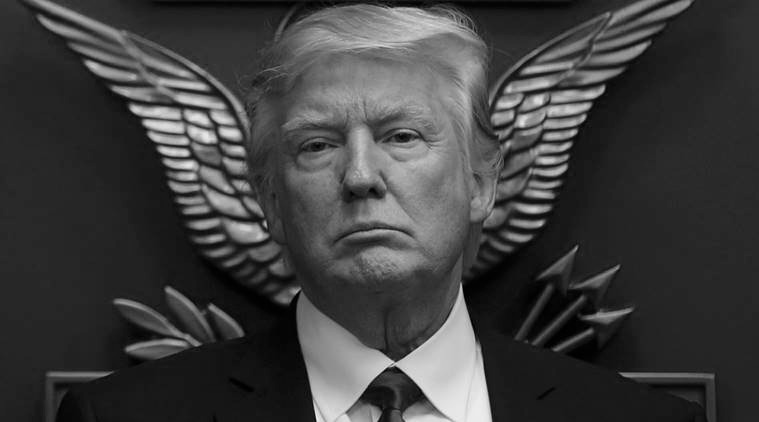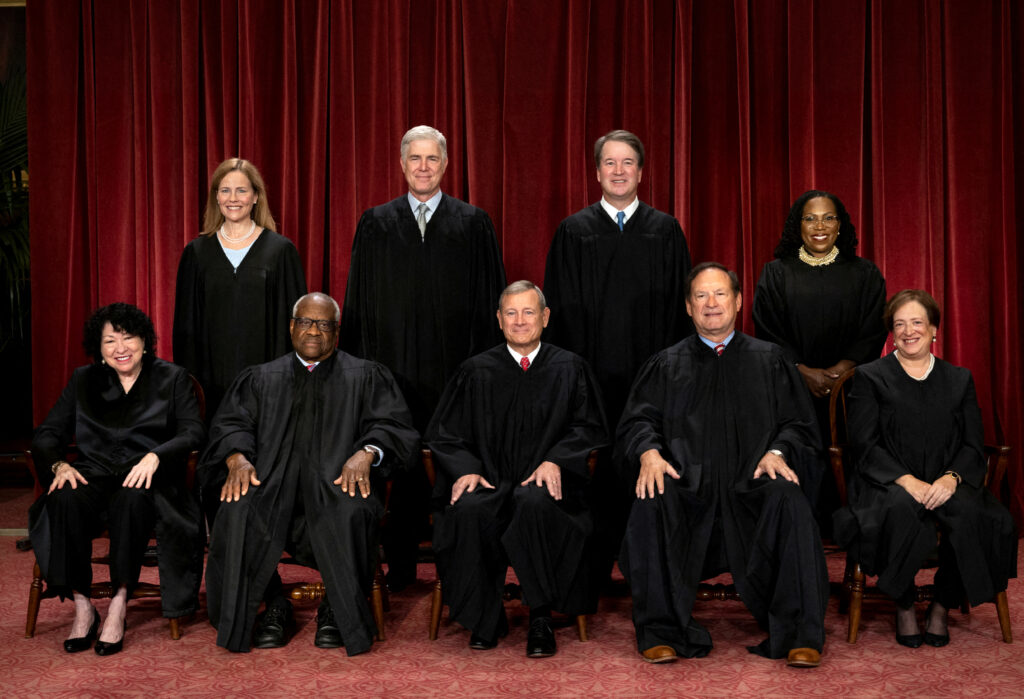from 21st Century Wire:

Constitutional Law expert Jonathan Turley writes…
In his book Profiles of Courage, John F. Kennedy discussed figures who answered the call of history and how such defining moments are “an opportunity that sooner or later is presented to us all.” That moment will now be presented to nine justices of the United States Supreme Court after a divided decision of the Colorado Supreme Court to disqualify Donald Trump in the 2024 election.
TRUTH LIVES on at https://sgtreport.tv/
The test for the U.S. Supreme Court is not just what they should do, but how they should do it.
As an institution, the Court is often called upon to seize such moments to bring unity and clarity on our core values. That is why this insidious opinion must not only be unequivocal but unanimous.
The Colorado decision to bar Donald Trump from the ballot will be overturned because it is wrong on the history and the language of the 14th Amendment.
Dead wrong.

U.S. Supreme Court justices Amy Coney Barrett, Neil M. Gorsuch, Brett M. Kavanaugh, Ketanji Brown Jackson, Sonia Sotomayor, Clarence Thomas, Chief Justice John G. Roberts, Jr., Samuel A. Alito, Jr. and Elena Kagan pose for their group portrait at the Supreme Court in Washington, U.S., October 7, 2022. (Credit: REUTERS/Evelyn Hockstein)
The question is whether the US Supreme Court will speak with one voice, including the three liberal justices.
As with the three Democratic state justices who refused to sign off on the Colorado opinion, these federal justices can now bring a moment of unity not just for the court but the country in rejecting this shockingly anti-democratic theory.
For years, the disqualification theory has been treated like some abstract parlor game for law professors.
While Democrats called for the disqualification of 120 House members, it was treated as a fringe theory.
It has now lost its charm as a legal brain teaser.
As I have previously written, the disqualification of Trump is based on the use of a long-dormant provision in Section 3 of the 14th Amendment.
After the Civil War, House members were outraged to see Alexander Stephens, the Confederate vice president, seeking to take the oath with an array of other former Confederate senators and military officers.
They had all previously taken the same oath and then violated it to join a secession movement that claimed the lives of hundreds of thousands of Americans.
That was a true rebellion.
January 6, 2021, was a riot.
That does not excuse those who committed crimes that day — but it was not an insurrection.
The majority on the Colorado Supreme Court adopted sweeping interpretations of every element of the decision to find that Trump not only incited an insurrection, but can be disqualified under this provision.
It does not matter that Trump has never been charged with even incitement or that he called for his supporters to go to the Capitol to protest “peacefully.”
In finding that Trump led an actual insurrection, the four justices used speeches going back to 2016 to show an effort to rebel before Trump was ever president.
There are ample grounds to summarily toss this opinion to the side.
However, that would not answer the call of this historic moment.
What these four justices did was a direct assault on our democratic process in seeking to bar the most popular candidate in the upcoming election.
Whatever the view of Trump, this is a decision that should rest with the voters.
No only are these four justices seeking to bar the votes of millions of voters (even barring the counting of write-in votes), but they are doing so in the name of democracy.
It is the ballot cleansing that is usually associated with authoritarian countries like Iran, where voters are protected from “unworthy” candidates.
Justice Robert Jackson once observed that he and his colleagues “are not final because we are infallible, we are infallible because we are final.”
A decision on Colorado could put this theory to rest by the sheer finality of the appeal.
However, it is not the finality that is needed at this moment. We need clarity. Clarity of purpose and principle.
The Supreme Court plays a unique role in our system at times like these.
It must at times defy us in rejecting racism as cases such as Brown v. Board of Education.
At other times, it has protected in rejecting government overreach as in cases such as Katz v. United States, demanding warrants to overcome the reasonable expectation of privacy.
This is a time where it can unify us.
The court holds the ultimate “bully pulpit” that can educate citizens on what defines us as a people.
Most people understand intuitively that what these four justices did in Colorado was wrong.
However, the court can speak as one — conservatives and liberals — in reaffirming the core values discarded by these state justices.
In that sense, it may be the greatest test of Chief Justice John Roberts.
Roberts once observed that “the most successful chief justices help their colleagues speak with one voice.”
Past chief justices from John Marshall to Earl Warren struggled to secure unanimous votes on fundamental cases to reaffirm such defining values.
The court could help unify this country in a way that may be unparalleled in its history.
It can show that justices who hold vastly different ideological views can be unified on core principles.
It can remind us that, as citizens, the Constitution is ultimately not a covenant with the government but with each other.
It is a leap of faith that, as a free people, we can decide our shared destiny and protect our shared identity.
Read More @ 21stCenturyWire.com



